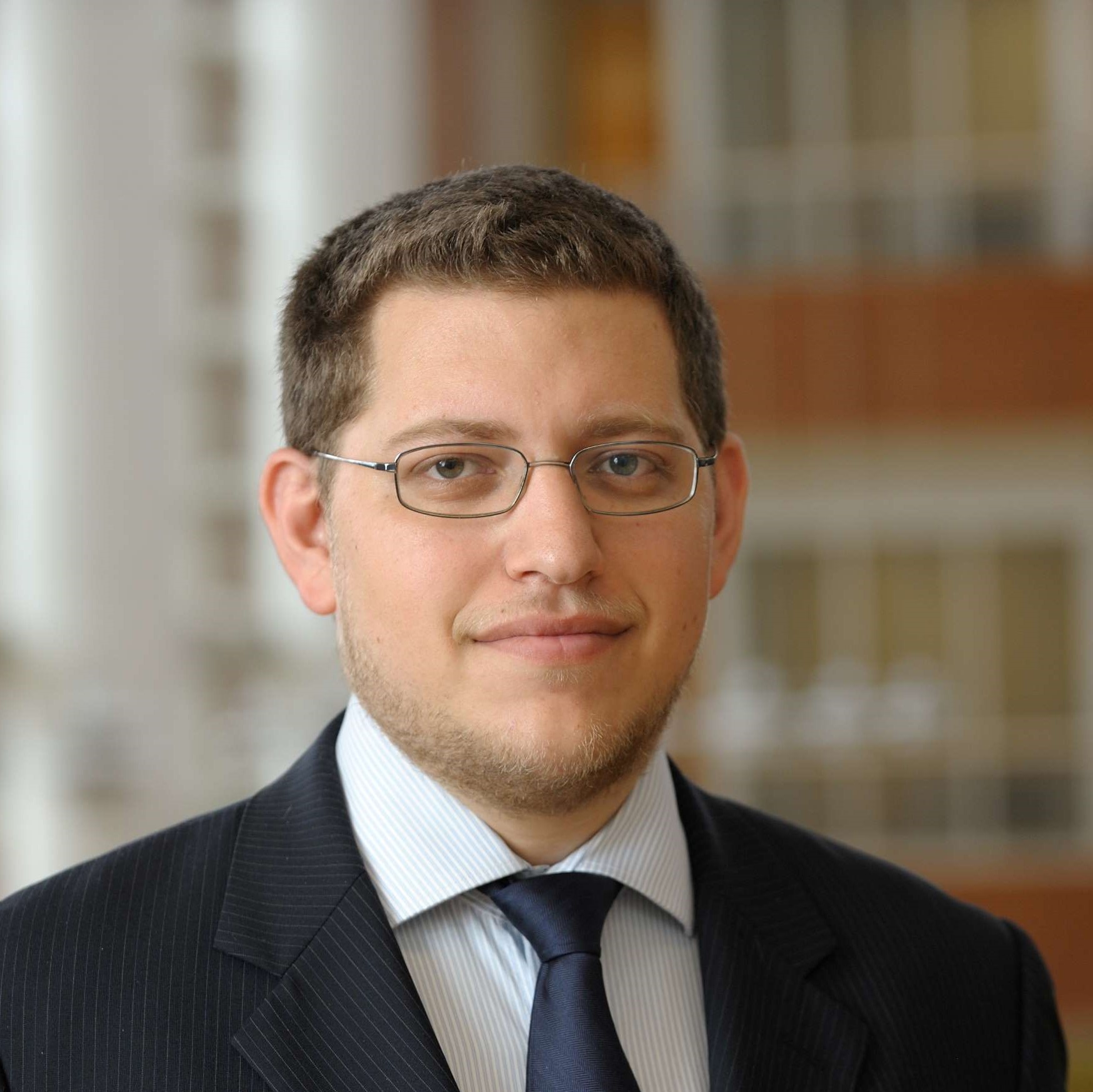Contact
Or D. Dantsker, Ph.D., M.B.A. Assistant Professor Department of Intelligent Systems Engineering Luddy School of Informatics, Computing, and Engineering Indiana University Bloomington Office: Luddy Hall 4064 Address: 700 N. Woodlawn Avenue, Bloomington, IN 47408 Email: odantske@iu.edu

Short Bio
Dr. Or D. Dantsker is an Assistant Professor in the Department of Intelligent Systems Engineering and the Director of the Aerospace Systems Lab at Indiana University Bloomington. He earned his Ph.D. in Aerospace Engineering from the University of Illinois at Urbana-Champaign in 2021, and his M.B.A. from the same institution in 2019. Before joining IU, Dr. Dantsker was a researcher at the Technical University of Munich (TUM) and also worked several years in industry as an AeroMechanical Engineer at AeroVironment, Inc.
Research Interests
-
Aircraft Autonomy
-
Multi-Domain Modeling, Emulation, and Optimization of Electric Aircraft
-
Flight Testing of Unmanned Aircraft
Prospective Students
Graduate Students: Pending funding, Dr. Dantsker is looking to admit graduate students to start in Fall 2024.
Undergraduate Students: Dr. Dantsker's undergraduate research assistants will take part in a variety of hands-on research and training. Application material will be accepted on a rolling basis. Please email Dr. Dantsker at odantske@iu.edu with the subject line “Prospective Graduate Student” or “Prospective Undergraduate Research Assistant” to apply or learn more. Include the following materials in your email:- Curriculum vitae or resume
- Most recent unofficial transcript
- A brief description of your research interests, degree, and career goals
Longer Bio
Dr. Or D. Dantsker is an Assistant Professor in the Department of Intelligent Systems Engineering at Indiana University Bloomington. There he is the Director of the Aerospace Systems Lab. His research interests encompass the electrified future of aviation, where emission-free, automated electric aircraft are poised to replace conventional, environmentally harmful modes of transportation. Leveraging his technical expertise, he is committed to advancing electric aerial vehicle research. Dr. Dantsker's focus lies in the development of green energy aircraft that can operate in real-world conditions, a task that involves addressing the co-design challenge of optimizing both aircraft power efficiency and computing capability. High power efficiency allows electric aircraft to fly their desired mission, while computational capability allows them to do safely with other vehicles in the same airspace. Therefore, Dr. Dantsker's research is at the intersection of aircraft design and computing - specifically, he is enthusiastic about conducting electric aerial vehicle research applied to unmanned aerial vehicles (UAVs) that encompasses areas such as: (a) autonomy, (b) multi-domain modeling, emulation, and optimization, and (c) flight testing. Dr. Dantsker aims to develop methodologies and tools that offer significant improvements while remaining practical for real-world implementation.
He earned his Ph.D. in Aerospace Engineering from the University of Illinois at Urbana-Champaign in 2021, and his M.B.A. from the same institution in 2019. His doctoral research developed a cyber-physical prototyping and testing framework for UAVs, including a computationally-intensive, long-endurance solar-powered UAV, called the UIUC-TUM Solar Flyer. Despite being developed from only commercially-available components, the 13 ft (4.0 m) wingspan aircraft could perform 8+ hour flights late in the season under challenging high winds and mostly-cloudy skies . To create this groundbreaking aircraft, he devised a mix of novel simulated and real-world techniques encompassing UAV modeling, emulation, ground measurement, flight testing, and optimization. This research was sponsored by the National Science Foundation, Cyber-Physical Systems program and was later awarded a University of Illinois Center for Digital Agriculture seed grant (Dr. Dantsker was a co-PI). One of Dr. Dantsker's other notable achievements during his doctorate was the development of a high-frequency data acquisition system composed of COTS components that, at the time of development, provided the greatest demonstrated sensor capability at the highest acquisition rate among research-grade data acquisition systems used on UAVs. The system performance and development methodology was presented at the highly selective IEEE/ACM International Conference on Cyber-Physical Systems (acceptance rates below 25%). This system's evolution led to Dr. Dantsker and his colleague to develop a commercial 400 Hz flight control and data acquisition system under their startup, Al Volo LLC. Recognized globally, this system offers superior capabilities and performance compared to other systems in the literature, and it's in use across universities on three continents. During his graduate studies, he was also awarded the “H.S. Stillwell Graduate Fellowship” and the “Preston A. Henne Aerodynamics Fellowship in Aerospace Engineering”.
Before joining IU, Dr. Dantsker was a researcher at the Chair of Cyber-Physical Systems in Production Engineering at the Technical University of Munich (TUM), exploring development, modeling, optimization, and flight testing methods for electric and solar-powered UAVs. While conducting research at TUM, he was awarded “Best Presentation Award, Topic Area 3: Electric Aircraft System Integration and Controls” and “Best Student Presentation” at the 2019 AIAA/IEEE Electric Aircraft Technologies Symposium for his paper on propulsion system optimization on electric UAVs. Dr. Dantsker has also worked several years in industry as an AeroMechanical Engineer at AeroVironment, Inc. There, he conducted development and flight testing of the 262 ft (80 m) wingspan, solar-powered, high-altitude pseudo satellite (HAPS) HAPSMobile "Sunglider" aircraft. In 2020, Dr. Dantsker was part of the flight crew that successfully demonstrated a stratospheric internet relay at an altitude of 62,500 ft (19 km) , providing LTE service to a smartphone on the ground, enabling a video call. In addition, Dr. Dantsker served as the Chief Engineer and Pilot for HAPSMobile sub-scale models that are used to assess next-generation aircraft designs and flight control systems. So far, this effort culminated in a 88 ft (26.8 m) wingspan, ultralight and highly-flexible aircraft, which is a 1/4-scaled model of a potential future HAPS aircraft - the subscale model is the largest wingspan SUAS aircraft under 55 lb ever flown under FAA Part 107, has the largest aspect-ratio of any aircraft with constant airfoil and chord wing (44), and the lowest wing-loading aircraft when scaled by wingspan. In recognition of Dr. Dantsker's research and industry expertise, he was selected to the AIAA Flight Testing Technical Committee in 2021, and most recently to Technical Program Committees for the 2022, 2023, and 2024 Aviation Forums.